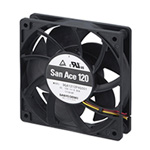-
 ACS
ACS
。運動控制器
。軸卡 -
 。步進驅動器
。步進驅動器
。伺服驅動器 -
 。伺服馬達
。伺服馬達
。步進馬達
。音圈馬達
。線性馬達
。直驅馬達 -
 。回授元件
。回授元件
。光學尺
。磁性尺
。顯示器
。編碼器
。Linear Encoder -
 New Way
New Way
。空氣軸承
。Air conveyor -
 。多孔性陶瓷真空吸盤
。多孔性陶瓷真空吸盤
-
 FMS
FMS
。張力控制器
。張力放大器
。張力感測器 -
 HarmonicDrive®
HarmonicDrive®
。諧波減速機
。直驅電動機
。旋轉執行元件 -
 。減速機
。減速機
。齒輪齒排 -
 Sejin
Sejin
。齒輪齒排 -
 SANYO DENKI
SANYO DENKI
。San Ace 冷卻系統
。SANUPS 電源系統
。SANMOTION 伺服系統 -
 。聯軸器
。聯軸器
。免鍵式軸襯 -
 。定位平台 (滑台)
。定位平台 (滑台)
。史都華平台
。Theta Hybrid Hexapod
。X-Y-Z Table -
 ALIO
ALIO
。Hybrid Hexapod -
 。次系統設備(客製)
。次系統設備(客製)
-
 。電動缸
。電動缸
。千斤頂
。升降器
。線性致動器 -
 。軸承
。軸承
。線性軸承
。線性滑台 -
 i-Autoc
i-Autoc
。固態繼電器SSR -
 Karl Klein
Karl Klein
。鼓風機 -
 特殊環境用
特殊環境用
防爆/防水/真空/
低溫/重載 -
 應用案例影片
應用案例影片
-
 庫存出清
庫存出清
Junus servo drives for brush motors (JSP)
|
PDF下載 |

JSP Panel

Control Modes
• Velocity, Torque
Command Interface
• ±10V velocity/torque command
• PWM velocity/torque command
Communications
• RS232
Feedback
• Back-EMF (velocity mode)
I/O - Digital
• 5 inputs, 1 output
Dimensions: mm [in]
• 130 x 82 x 31 [5.1 x 3.2 x 1.2]
|
Model |
IC |
IP |
VDC |
|
JSP-090-10 |
5 |
10 |
90 |
|
JSP-090-20 |
10 |
20 |
90 |
|
JSP-180-10 |
5 |
10 |
180 |
|
JSP-180-20 |
10 |
20 |
180 |
|
JSP-180-30 |
15 |
30 |
180 |
DESCRIPTION
The Junus™ digital servoamplifier puts 100% digital control of DC
brush motors in a panel-mounting package with power options to
±15 Adc continuous and ±30 Adc peak from +20 Vdc to +180 Vdc
DC power supplies.
Torque mode operation works with popular position-loop controllers
that use PID filters to close a position-loop. Sensorless velocity
control works with position loop controllers that only output a
position-error signal such as PLC’s.
Set-up is fast and automated by CME 2™ software operating under
Windows®.
CME 2™ communicates with Junus™ through an RS-232 link for
complete amplifier setup. Auto-tuning algorithms in CME 2™
slash set up times for fast system commissioning by automating
current and velocity-loop tuning. A powerful oscilloscope and
signal generator display amplifier performance for fine tuning
thereafter.
Amplifier control parameters are saved in non-volatile flash memory.
OEM’s can inventory one part, and configure amplifiers on-site to
each axis in a machine.
Current-loop sampling at 20 kHz yields high-bandwidth with full
adjustability. The velocity loop is sampled at 4 kHz for wide velocity
bandwidths.
Carrier-cancellation modulation all but eliminates motor ripple
current and dissipation at a standstill, and provides excellent
crossover characteristics for voice-coil applications that demand low
distortion around zero. PWM ripple is at 40 kHz, further minimizing
losses in low-inductance motors.
Sensorless velocity control regulates motor back-EMF and
compensates for changes in load that would cause a speed change
with simple voltage controls. Amplifier output voltage is increased to
offset the internal I*R voltage drops, keeping back-emf constant.
All amplifier circuits are DC coupled and operate from unregulated
transformer-isolated DC power supplies, or regulated switching
power supplies.
The panel-mount package is compatible with the mounting footprint
of Copley’s 4xx series analog DC brush-motor amplifiers, offering
an easy upgrade to 100% digital control.
